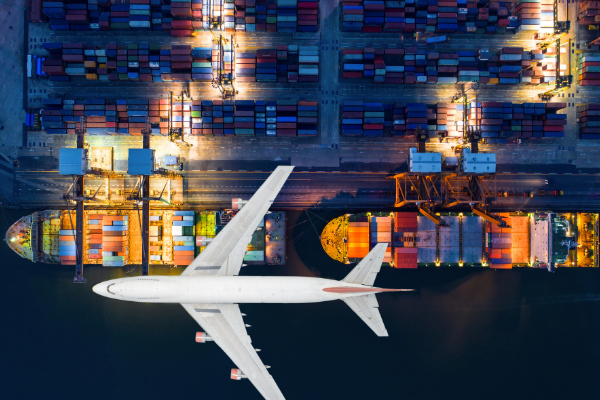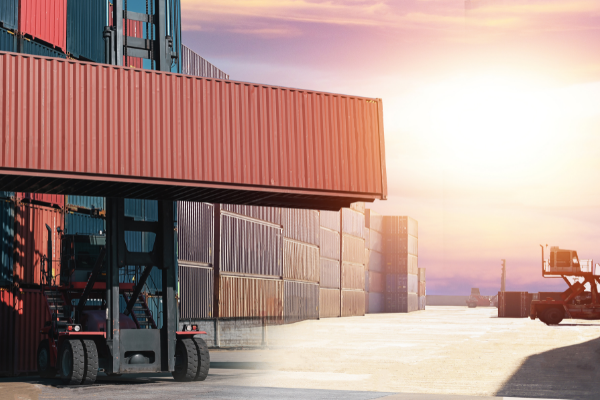BY:
SHARE:

Having worked within the freight forwarding industry for more than 19 years, I saw many obstacles and difficulties with obtaining pre- and prior shipment information. Information ensuring that not only were we compliant as a forwarder but also as an importer or exporter was often either not at hand or post-shipment documentation was filed away within storage. In some situations, there was a delay in receiving the documents, which delayed shipments, something that you could not afford to happen as an exporter or importer.
This is where things are very different within the modern-day logistics sector. The age of digitalisation is very recent in historical terms, with the first smartphones putting obtaining information at our fingertips and you could argue that logistics has been slow to catch up.
The recent technological boom has empowered importers and exporters, providing them with a wealth of information from online or app shipment tracking to barcoding, QR codes, proof of deliveries, electronic certification, Customs declarations, and shipment quotations. All this information is now in our hands within seconds. It's a level of control and efficiency that I wish I had during my time in the industry.
You only have to visit one of the many parcel hubs to see how vast the change is when digitalising our logistics and how much of a potential benefit this has become. How many of us order products online that are delivered to us, with every step of the journey being logged via an app on our mobile phones? The same can now happen within your logistics and supply chains. Are you utilising the facility?
Compliance has always been key to imports and exports. If we look back to the days of paper documentation and certification, businesses that dealt with international trade had to ensure that they held the evidence of imports and exports. Customs declarations, import or export logs, and all relevant documentation were readily available on paper. This was sometimes posted if they were original certificates for delivery the next day. Customs declarations and shipping paperwork were faxed or emailed. We had to wait until the haulier sent these to us for proof of deliveries, often faxed or emailed the next day.
As this can now be held electronically, there are many cases where evidence is stored and shared through internal and online systems, connecting to our freight forwarder or carrier, all at our fingertips. If we want to know if our shipment has been delivered, we are only one click away.
Logistics and supply chains are all about efficiency and cost, with the latter being the driving force for many. The introduction of forwarder portals or online systems that connect all parties within the logistics supply chain is testament to the potential of digitalisation. Many logistics companies now offer an online quotation or consolidation system, further enhancing efficiency and reducing costs. Even electronic portal systems can receive quotations from multiple carriers or freight forwarders for consignments, making the process more streamlined and cost-effective.
Another benefit of digitalisation is Customs audits, pre- or prior shipment inspections by the border force, and documentation checks by the national clearance hub. Border checks at a border control post with the potential need to send additional certification or documentation. No posting or waiting a day or two for the documents to arrive, delaying the consignments. We can now click and obtain the information from our forwarder immediately.
Even International trade requirements to and from the UK are via electronic systems; IPAFFS (Import of products, animals, food and feed system), via gov.uk, used to pre-notify imports of certain food products, is just one example. Digitalisation plays a crucial role in meeting these international trade requirements, ensuring smooth and efficient cross-border transactions. We have also seen the introduction of the single trade window so you can see how the future will look and the direction in which this will move.
It is not just the UK that is taking this approach, though. The vast majority of countries now all have some form of electronic certification or documentation, ranging from shipment pre-arrival notification systems to conformity certification, inspection requirements, and import and export Customs declaration systems.
While the benefits of digitalisation in logistics are clear, it's also important to consider the potential risks. Cybersecurity threats, system failures, and the need for continuous updates and maintenance are all factors that need to be managed when embracing the digital age in logistics. Are these things that we have not considered?
As individuals or collectively as a business, I think we should.
If you are interested in exploring this topic further, you might find it worthwhile to consider the training courses and live clinics offered by Strong & Herd LLP:
OneCall™ Email assistance as and when required; A one-call solution for all your import, export and customs enquiries. Export help. Import help. Customs help.
Stay informed about customs and international trade matters by subscribing to our OneCall™ service. This comprehensive offering includes a dedicated email helpline for support, timely practical updates direct to your inbox (Did You Know?), monthly UK Customs & Trade Briefings and access to an interactive members' area with an exclusive community for our subscribers.
International Trade Updates & Spotlight Newsletter
Subscribe to our free information emails covering international trade topics...
MORE INDUSTRY INSIGHTS...













